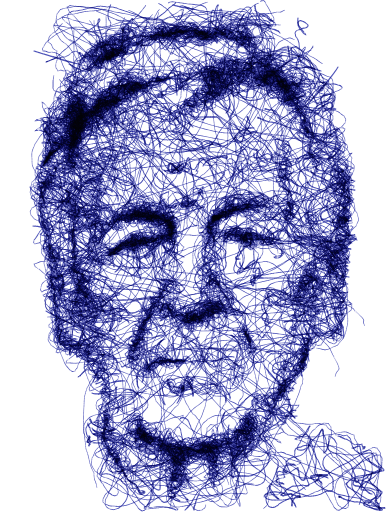Biography de Costa Gavras, filmmaker

Costa-Gavras, born Konstantínos Gavrás on February 13, 1933, in Arcadia, Greece, is a renowned Franco-Greek filmmaker known for his politically engaged films. Forced to leave Greece due to his father’s political views, he settled in Paris and studied at the Sorbonne before joining IDHEC. He began as an assistant director before achieving his first success with Compartiment tueurs (1965). His film Z (1969), denouncing the colonels’ dictatorship in Greece, won two Oscars and the Jury Prize at Cannes.
Costa-Gavras explores political and social themes in works such as Missing (1982) and Amen (2002). As president of the Cinémathèque Française, he is a major figure in engaged cinema. Since 1987, he has served as honorary president of the Fondation Gan pour le Cinéma, which he helped establish.
Anecdote about his arrival at the Cité Internationale Universitaire de Paris, recounted in his book Go Where It’s Impossible to Go: He walked along the street and asked a passerby, “Where do students live cheaply?” “The Cité Universitaire,” he was told. He recognized the Hellenic Foundation by its Ionic columns… He overcame his shyness and went inside.
Βιογραφία του Κόστα Γαβρά, σκηνοθέτη
Ο Κώστας-Γαβράς, γεννημένος ως Κωνσταντίνος Γαβράς στις 13 Φεβρουαρίου 1933 στην Αρκαδία της Ελλάδας, είναι ένας Γαλλο-Έλληνας σκηνοθέτης, γνωστός για τις πολιτικά εμπλεκόμενες ταινίες του. Αναγκασμένος να εγκαταλείψει την Ελλάδα λόγω των πολιτικών απόψεων του πατέρα του, μετακόμισε στο Παρίσι και σπούδασε στη Σορβόννη πριν ενταχθεί στο IDHEC. Ξεκίνησε ως βοηθός σκηνοθέτη πριν υπογράψει την πρώτη του επιτυχία, το “Compartment Killers” (1965). Η ταινία του «Ζ» (1969), η οποία καταγγέλλει τη δικτατορία των συνταγματαρχών στην Ελλάδα, κέρδισε δύο Όσκαρ και το βραβείο της Επιτροπής στις Κάννες. Ο Κώστας-Γαβράς εξερευνά πολιτικά και κοινωνικά θέματα σε έργα όπως το “Missing” (1982) και το “Amen” (2002). Πρόεδρος της Γαλλικής Ταινιοθήκης, αποτελεί σημαντική προσωπικότητα στον αφοσιωμένο κινηματογράφο. Από το 1987, είναι επίτιμος πρόεδρος του Ιδρύματος Gan για τον Κινηματογράφο, στη δημιουργία του οποίου συνέβαλε ο ίδιος. Αnekdotos σχετικά με την άφιξή του στην Cité internationale universitaire του Παρισιού, την οποία περιγράφει στο βιβλίο του Va où il est impossible d’aller. Περπατάει στο δρόμο και ρωτάει έναν περαστικό: Πού μένουν οι φοιτητές με χαμηλό κόστος διαβίωσης; «Στην Cité universitaire», μου απαντάει. Αναγνωρίζω την Ελληνική Ίδρυση από τις ιωνικές κολόνες της… Ξεπερνάω τη ντροπαλότητά μου και μπαίνω μέσα.
Enter the galaxy of words that allow you to go where it is impossible to go.
Μπείτε στον γαλαξία των λέξεων που σου επιτρέπουν να πας όπου είναι αδύνατο να πάει κανείς. Κώστας Γαβράς
A poem-chair
“I adopted the chair, this familiar object, a few decades ago, at a time when I wanted to create art on a human scale in public spaces, while everywhere else people opted for the monumental: it is an object shaped like the body and serves the body. It is difficult to feel exclusive ownership of an object so universally shareable. It is mine when I occupy it, but if I leave it, someone else can claim it as their chair.” Michel Goulet, artist-sculptor
The project Prendre position
Prendre position is a sculpture-installation project of 47 chair-poems to mark the 100th anniversary of the Cité internationale universitaire de Paris. They were installed in a flowered meadow created especially for the occasion by the campus estate service.
This artistic installation was conceived by the Quebecois artist-sculptor Michel Goulet, in collaboration with François Massut, founding director of the collective Poésie is not dead.
Each house on the campus is represented by a chair, thanks to a donation from the Maison des étudiants canadiens and the support of the Labrenne group. Each of the 47 chairs is a unique work.
History and architecture of the house
The mobilization of Francophile Greek circles, notably by Ambassador Nicolas Politis, was decisive in raising the funds needed for the construction of this house. Designed by architect Nikolaos Zahos, the building pays tribute to classical Greek architecture.